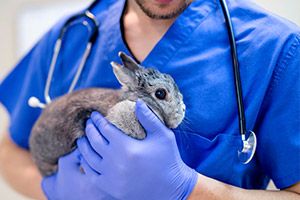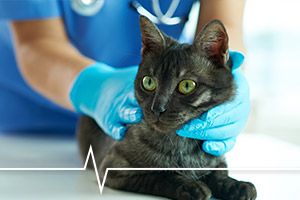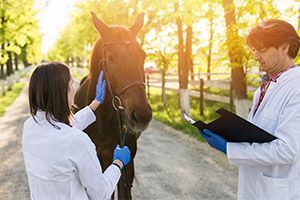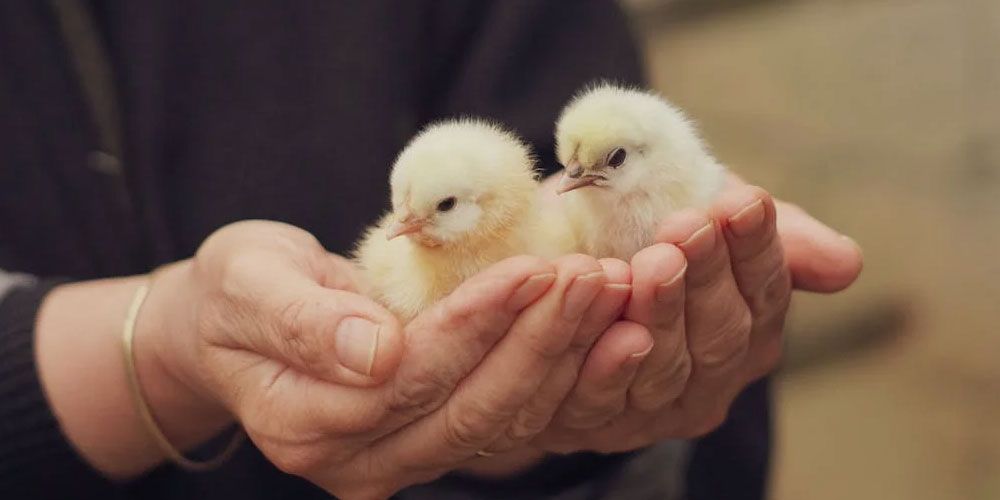Working with animals is definitely in your future — you’ve known that for years. While you might not know exactly what you want your career to be, pursuing veterinary medicine could be a great choice. It’s an incredibly diverse discipline. Veterinary professionals can be found working at research labs, zoos, farms, and countless other settings.
Now that your interest is piqued, you might want to learn more about the different types of veterinary specialists out there. There are 22 specialty organizations recognized by the American Veterinary Medical Association (AVMA), and some of them encompass multiple subspecialties. You could discover your future career by scrolling through this list of veterinary specialties.
22 Types of veterinary specialties
Each of the below specialties requires additional training beyond that of a general practice veterinarian. For many veterinary specialists, pursuing something they’re passionate about was well worth the extra effort. Read on to hear a bit more about the different options.
1. Anesthesia and analgesia
While every licensed veterinarian can administer anesthesia, Diplomates of the American College of Veterinary Anesthesia and Analgesia have additional training in this specific area. Veterinary anesthesiologists are highly skilled at managing pain and minimizing the risk of complications. They tailor a plan specifically to each animal, anticipate and address problems during surgery, and carefully monitor patients after the procedure.
2. Animal welfare
Diplomates of the American College of Animal Welfare are uniquely qualified to advance animal well-being by providing the public and other veterinarians with accurate information and advice. They’re leaders in animal welfare science and ethics who understand how to apply their knowledge. This makes them well suited to work for the government, universities, and veterinary practices.
3. Behavioral medicine
Veterinary behaviorists use a combination of medical and behavioral knowledge when working with animals. These professionals see patients with needs that go beyond basic obedience issues, so they must be able to take detailed histories and identify the most relevant facts. If necessary, a behaviorist will determine a medication protocol as part of the animal’s treatment plan.
4. Clinical pharmacology
Like with human medications, drugs used for animals are subject to research and regulation. That’s where Diplomates of the American College of Clinical Pharmacology come in. They’re educated in drug development, proper usage, and how medications interact. Veterinary clinical pharmacologists help ensure animals receive safe, effective treatment.
5. Dentistry
Animals might not care if they have aesthetically pleasing teeth, but healthy chompers are essential for their daily lives. Dental problems can lead to malnourishment and general discomfort. Diplomates of the American Veterinary Dental College are qualified to clean, adjust, and extract teeth as well as perform any necessary oral surgery.
6. Dermatology
There’s much more to veterinary dermatology than addressing a rogue rash or two. The skin diseases animals experience vary significantly by species, so veterinary dermatologists need to have experience in many different types of treatments. They also receive training in internal medicine, immunology, and allergy since some dermatological issues stem from a health problem within.
7. Emergency and critical care
 When animals become injured or suddenly develop a life-threatening health problem, they need prompt medical attention. Veterinary specialists in emergency and critical care are trained for these types of high-pressure situations. No matter the emergency, they’re equipped to act swiftly and ensure the animal in question gets the immediate attention it needs.
When animals become injured or suddenly develop a life-threatening health problem, they need prompt medical attention. Veterinary specialists in emergency and critical care are trained for these types of high-pressure situations. No matter the emergency, they’re equipped to act swiftly and ensure the animal in question gets the immediate attention it needs.
8. Internal medicine
Diplomates of the American College of Veterinary Internal Medicine are highly trained veterinarians who treat uncommon or complicated diseases. Pet owners are often referred to these specialists from their regular veterinarians when the case is complex or when the animal requires a highly technical procedure. Internal medicine veterinarians can further specialize in the following:
- Cardiology
- Large animal internal medicine
- Neurology
- Oncology
- Small animal internal medicine
9. Laboratory animal medicine
Even animals used in laboratory settings needs proper care and attention. Veterinarians who specialize in lab animal medicine ensure this is the case by working in a number of roles. They may direct animal resource programs, consult other science professionals on appropriate care and use of animals, conduct research, and more.
10. Microbiology
Veterinary microbiologists are often the driving force behind developing treatments for infectious animal diseases. They typically work in a lab setting to research bacteria, parasites, and other microorganisms that cause disease. Because some diseases can affect both animals and humans, veterinary microbiologists play a crucial role in protecting public health.
11. Nutrition
 Diplomates of the American College of Veterinary Nutrition receive extensive education and training in managing animals’ diets. They may work with healthy patients, but they also develop nutrition plans for sick animals to help manage their ailments. They work in environments ranging from pet food companies to veterinary hospitals.
Diplomates of the American College of Veterinary Nutrition receive extensive education and training in managing animals’ diets. They may work with healthy patients, but they also develop nutrition plans for sick animals to help manage their ailments. They work in environments ranging from pet food companies to veterinary hospitals.
12. Ophthalmology
The eye specialists of the animal world, veterinary ophthalmologists treat eye diseases outside the scope of a regular veterinarian’s expertise. They conduct exams, perform surgeries, and consult with other veterinarians to help prevent issues before they begin. Diplomates of the American College of Veterinary Ophthalmologists clearly play an important role in supporting animals’ quality of life.
13. Pathology
Not every medical issue can be identified through routine exams and tests. Sometimes, veterinary pathologists are called upon to make a diagnosis by examining tissue or fluid samples. Veterinary pathologists are also heavily involved in research and developing effective medications. The majority of these veterinary specialists work in academia or industry, but you’ll also find them filling roles in various labs and government regulatory agencies.
14. Poultry veterinary medicine
A bit different from avian practitioners as a whole, poultry veterinarians work with domestic birds like chickens, turkeys, and ducks. Most Diplomates of the American College of Poultry Veterinarians work in food production, ensuring meat and eggs are safe for consumption. They can also choose to work with just one species of poultry.
15. Preventive medicine
Prevention is one of the greatest health strategies for humans, so it makes perfect sense that it’s equally effective for animals. Preventive medicine veterinarians work to detect and control diseases affecting both animals and humans. It’s an inherently collaborative area of study that lends itself to employment in regulatory medicine, epidemiology, and public health.
16. Radiology
Imaging that was once reserved for humans is now widely available for animals, but not every veterinarian is fully versed in the appropriate technology. Diplomates of the American College of Veterinary Radiology are bridging the gap by seeing referral patients in need of x-ray, ultrasound, or other advanced imaging procedures. They work in tandem with the referring veterinarian to ensure the animal receives the best outcome.
17. Species-specialized veterinary practice
Unlike MDs, veterinarians have the option to work with any number of species. Those who want to focus more on one particular animal or class of animals can do so by becoming a Diplomate of the American Board of Veterinary Practitioners. They develop in-depth knowledge and skill in one of the following specialties:
- Avian practice
- Beef cattle practice
- Canine and feline practice
- Dairy practice
- Equine practice
- Exotic companion mammal practice
- Feline practice
- Food animal practice
- Reptile and amphibian practice
- Shelter medicine practice
- Swine health management
18. Sports medicine and rehabilitation
 The goal of any veterinarian who specializes in sports medicine and rehabilitation is to return injured athletic animals to normal function and health. Their training exposes them to surgeries and procedures that other veterinarians might not be able to perform. Sports medicine and rehabilitation specialists can obtain certification to work with dogs or horses.
The goal of any veterinarian who specializes in sports medicine and rehabilitation is to return injured athletic animals to normal function and health. Their training exposes them to surgeries and procedures that other veterinarians might not be able to perform. Sports medicine and rehabilitation specialists can obtain certification to work with dogs or horses.
19. Surgery
Routine surgeries like spays and neuters are part of any veterinarian’s repertoire. Especially difficult or complex surgeries, though, often require a Diplomate of the American College of Veterinary Surgeons. In addition to their extensive training, veterinary surgeons also have access to equipment, facilities, and support staff that may not be available to general practice veterinarians.
20. Theriogenology
Theriogenologists are experts in animal reproductive health. They practice responsible breeding, performing everything from routine pregnancy checks to corrective surgical procedures. Because of their extensive training in animal reproduction, theriogenologists are particularly important for managing agriculture and protected species populations.
21. Toxicology
You’d probably be surprised to know how many poisons are all around us. Fortunately, veterinary toxicologists are doing important work to identify harmful substances in our products and environment, determine effective treatments for poisoned animals, and educate other veterinary professionals about potential threats. They work in numerous settings and play a vital role in promoting public health.
22. Zoological medicine
Domestic animals aren’t the only ones that need care. Wild animals, whether in protected settings or their natural environment, also experience health issues that require medical attention. Zoo and wildlife veterinarians are trained specifically to address these animals’ needs. Specialists in zoological medicine also play an important role in conservation and education.
Options for every interest
Whether you’re passionate about protecting the food supply, advancing animal well-being, or something in between, you have plenty of career options as a veterinary specialist. And you don’t have to make any decisions yet. You have plenty of time to figure out where your interests lie.
Regardless of which route you ultimately choose, your journey will start the same as every other veterinarian’s does. You’ll need to gain acceptance to vet school, obtain your degree, and complete licensing requirements. Learn more about how to travel toward a career as a practicing professional by reading our article, “How to Become a Veterinarian: Your 8-Step Guide.”

